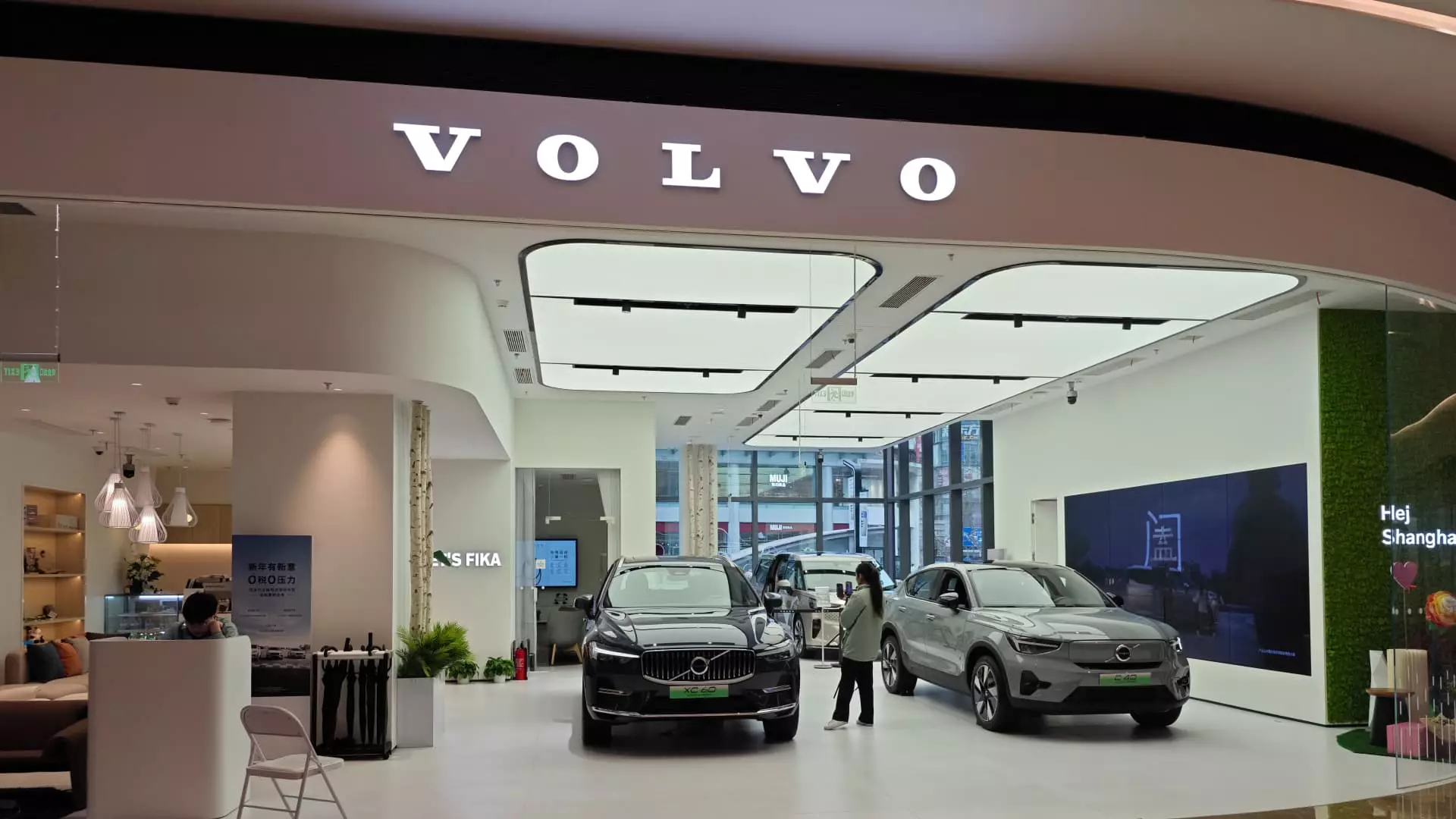Volvo Cars recently announced adjustments to its margin and revenue targets, citing increased complexity in global trade and tariffs as the main reasons. The Swedish automaker, owned by China’s Geely Holding, is now aiming for a 2026 EBIT margin goal of 7-8%, down from its previous target of “above 8%.” Additionally, the company is shifting its focus to continue outgrowing the premium car market until 2026, instead of sticking to its previously stated revenue target of between 500 billion and 600 billion Swedish kronor.
The ever-shifting landscape of international trade disputes and tariffs has posed a major challenge for automakers like Volvo Cars as they navigate geopolitics between the European Union, China, and the U.S. The company is also striving to maintain a competitive edge in a market that is increasingly dominated by the transition to electric vehicles. These challenges have led to Volvo Cars revising its targets and strategic goals.
While Volvo Cars had previously aimed for 100% of its sales to be all-electric vehicles by 2030, it has now adjusted this target to a range of 90-100%. This change allows for the continued sale of mild hybrid models, which combine internal combustion engines with electric assistance. The decision was influenced by factors such as consumer demand, slow rollout of charging infrastructure, withdrawal of government incentives in certain markets, and uncertainty surrounding tariffs on EVs.
In an effort to advance its technology and drive down costs in EV manufacturing, Volvo Cars announced an extension of its partnership with U.S. chip giant Nvidia. The collaboration will focus on developing features related to advanced driving assistance and autonomous driving. The company also revealed plans to transition to a “single technology stack” as part of its cost reduction strategy.
Recent figures released by Volvo Cars showed a 3% year-on-year increase in global sales in August, with significant growth in Europe but a decline in China. Fully-electric and plug-in hybrids accounted for nearly half of all vehicle sales in August 2024, highlighting the company’s commitment to electrification. Despite these positive sales figures, Volvo Cars remains vigilant in responding to market trends and challenges in the EV sector.
Volvo Cars’ decision to adjust its margin and revenue targets reflects the ongoing complexities in the global automotive market, particularly in relation to electric vehicles. By adapting its strategies and maintaining flexibility in its goals, the company aims to navigate the challenges presented by trade disputes, consumer demand, and evolving technology. The partnership with Nvidia and focus on technology development demonstrate Volvo Cars’ commitment to innovation in the electric vehicle sector. As the automotive industry continues to undergo rapid transformation, Volvo Cars will need to remain proactive in addressing market dynamics and consumer preferences to secure its position in the evolving landscape.

Leave a Reply